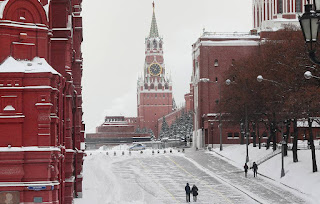The Kremlin is unaware of Ukraine’s alleged preparation of a peace plan, while Ukrainian leader Vladimir Zelensky’s recent statements about a peaceful solution are detached from reality, the Russian presidential spokesman, Dmitry Peskov, told reporters on Friday.
When asked whether the Kremlin has heard about Ukraine preparing a "peace formula," he said, "No, we know nothing about that." And yet, "we have heard President Zelensky’s statements about various steps,... about a peace plan. However, everything President Zelensky has said so far is out of touch with reality, which cannot be ignored," the Kremlin spokesman emphasized.
On Thursday, the Wall Street Journal reported, citing US and European sources, that authorities in Ukraine were working on proposals for a "peace formula" that may be made public next February. According to the newspaper, Zelensky’s team has a 10-point peace formula in the works.
Earlier, the Ukrainian leader told a joint meeting of Congress following his talks with US President Joe Biden that the two had discussed Kiev’s proposals to settle the Ukrainian conflict. According to Zelensky, Biden supported Ukraine’s initiative to hold a global peace summit to discuss these proposals.
At the same time, the spokesman noted there are no plans no preliminary contacts regarding a possible meeting between Russian President Vladimir Putin and his US counterpart Joe Biden. On Thursday, US press reported, citing Ukrainian and European diplomats, that Zelensky's administration had been finalizing 10-point "peace formula" initially mentioned at the G20 summit in Bali and would likely present it in late February, one year after the beginning of the Russian special military operation.
Ban on Gazprom Gas Purchase
Peskov also noted that restrictions for Gazprom on the purchase of gas from joint ventures with European companies are not a response to the introduction of an oil price cap, but to the actions of unfriendly countries.
"No, this is a decision that is not related to this European innovation (gas price cap). This is, in fact, a response to the actions of a number of unfriendly countries," Peskov said.
Earlier in the day, Russian President Vladimir Putin issued a decree, according to which Gazprom is restricted from buying gas from joint ventures with OMV and Wintershall, with which the company produces gas at the Urengoy and Yuzhno-Russkoye fields, if the amount of obligations exceeds the limit set by the government.
The EU, together with Britain and the US, sanctioned Russia after Moscow launched its special operation in Ukraine in February. In December, the EU also joined the G7 decision to set a price cap on Russian oil at $60 per barrel.
So far, the sanctions have disrupted global supply chains and aggravated issues on international fuel markets, leading to an energy crisis and soaring inflation in Europe.
Russia Ready to Cut Oil Production in Response to Oil Price Cap, Deputy Prime Minister Says
The European Union's $60 per barrel price cap on Russian oil went into effect on December 5, along with a ban on seaborne exports.
Russian Deputy Prime Minister Alexander Novak has stated that Moscow stands ready to reduce oil production as a response measure to the fuel price cap introduced by the EU and G7 members. According to him, the output could be slashed by up to 7% in early 2023.
Novak added that in retaliation, Russia plans to ban the supply of oil and petroleum products to countries and legal entities that require compliance with the price cap in contracts.
“Therefore, we are ready to reduce partial production, and at the beginning of next year we may have a reduction of somewhere by 500-700 thousand barrels per day. This is about 5-7% for us,” he said. The Russian Deputy Prime Minister noted that even though "this volume is insignificant, such risks exist."
He also said that oil production in Russia will increase by 2% and oil refining will increase by 5%, but that the gas output will decrease by 18-20% by the end of 2022.
"By the end of the year in the oil industry, we will even have a 2% increase in production to 535 million tons compared to last year. We will produce about 5% more petroleum products than last year," Novak pointed out.
"There is a partial decrease in the gas industry, about 18-20%. Nevertheless, our gas industry will produce 671 billion cubic meters of gas this year. This is also a large volume, of which about 470 billion cubic meters will go to the domestic market," he added.
The statement comes after Russia’s President Vladimir Putin told reporters on Thursday that he would sign a decree on retaliatory measures to the cap on Russian oil prices early next week, in what he described as precautionary measures.
The EU’s $60 per barrel price cap on Russian oil, which went into effect on December 5, will be reviewed every two months to remain at 5% below the International Energy Agency benchmark. The G7 nations and Australia also capped Russian oil exports at $60 per barrel.
Moscow lambasted the price cap as an attempt to manipulate “the basic principles of free markets,” warning that Russia won't sell oil to those countries that adopt the cap.


No comments:
Post a Comment